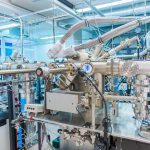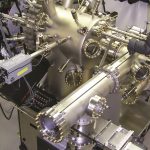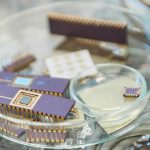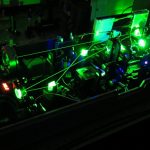
LNSM – website
Hosting institution: Institute of Physics, CAS
LNSM is focused on enabling research and development of a wide spectrum of inorganic nanomaterials (semiconductors, metals and ceramics) and nanostructures (particles, wires, interfaces, monolayers, thin films and nanostructured bulks). The subjects include microelectronics and nanoelectronics, spintronics, photovoltaics and photonic structures, carbon based thin films, nanostructures and materials and their functionalised surfaces for applications in medicine (e.g. implants or sensors). LNSM offers in particular epitaxial layers of compound semiconductors and spintronic materials, silicon and diamond thin films and nanostructures, bulk nanocrystalline metal-based alloys and composites and metal‑oxide nanoparticles. It also provides further patterning and device preparation by optical and electron-beam lithographies and by reactive ion etching, ion milling, contact depositions and auxiliary technologies. Samples can be characterized and analysed by state-of-the-art microscopic techniques. LNSM closely cooperates with the CEITEC Nano infrastructure and participates in European and worldwide networks such as IUVSTA (International Union of Vacuum Science and Technologies) or AVS (American Vacuum Society).
Future development
In long-term horizon the LNSM instrumentation is continuously being upgraded in order to maintain leadership within the core areas of expertise. The research infrastructure has already been expanded by UHV atomic force microscopy at low temperatures (down to 1.2 K) and high magnetic fields (up to 3 T) for atomically resolved scanning probe research. Development of novel devices was enabled by the installation of a new MOVPE (Metal Organic Vapour Phase Epitaxy) for the preparation of nitride semiconductor nano-heterostructures. The newest development of LNSM takes place by installing a unique system for molecular beam epitaxy (MBE) dedicated to preparing spintronic material structures.
Socio-economic impact
The LNSM offers unique services in the Czech Republic and it is being used by numerous educational and research organizations. The services are also used by several high-tech companies. The significance of LNSM is evidenced also by the granted projects in the Future and Emerging Technologies Open (FET Open) and Competitive Low-Carbon Energy (LCE) calls of the Horizon 2020 programme.



